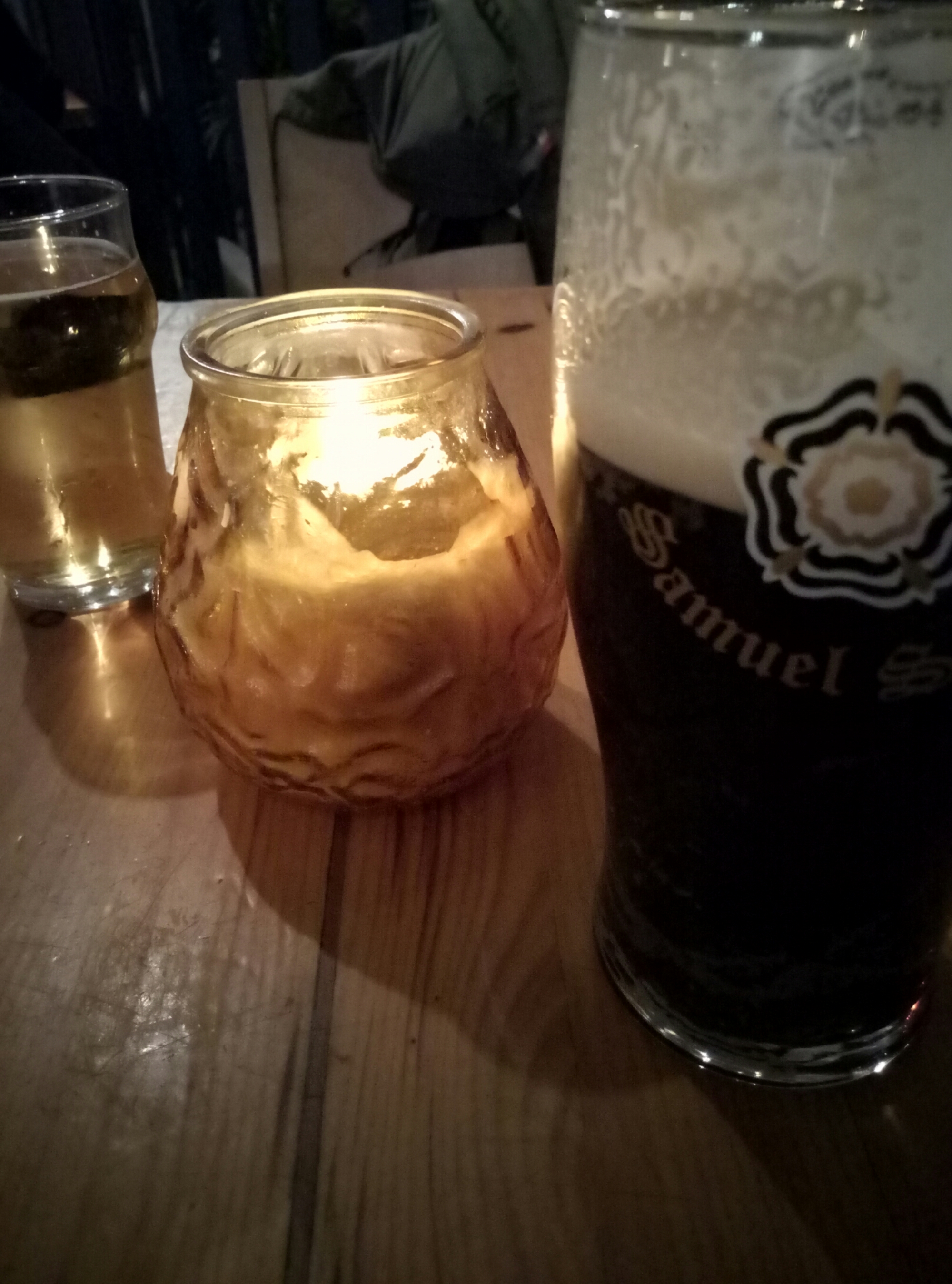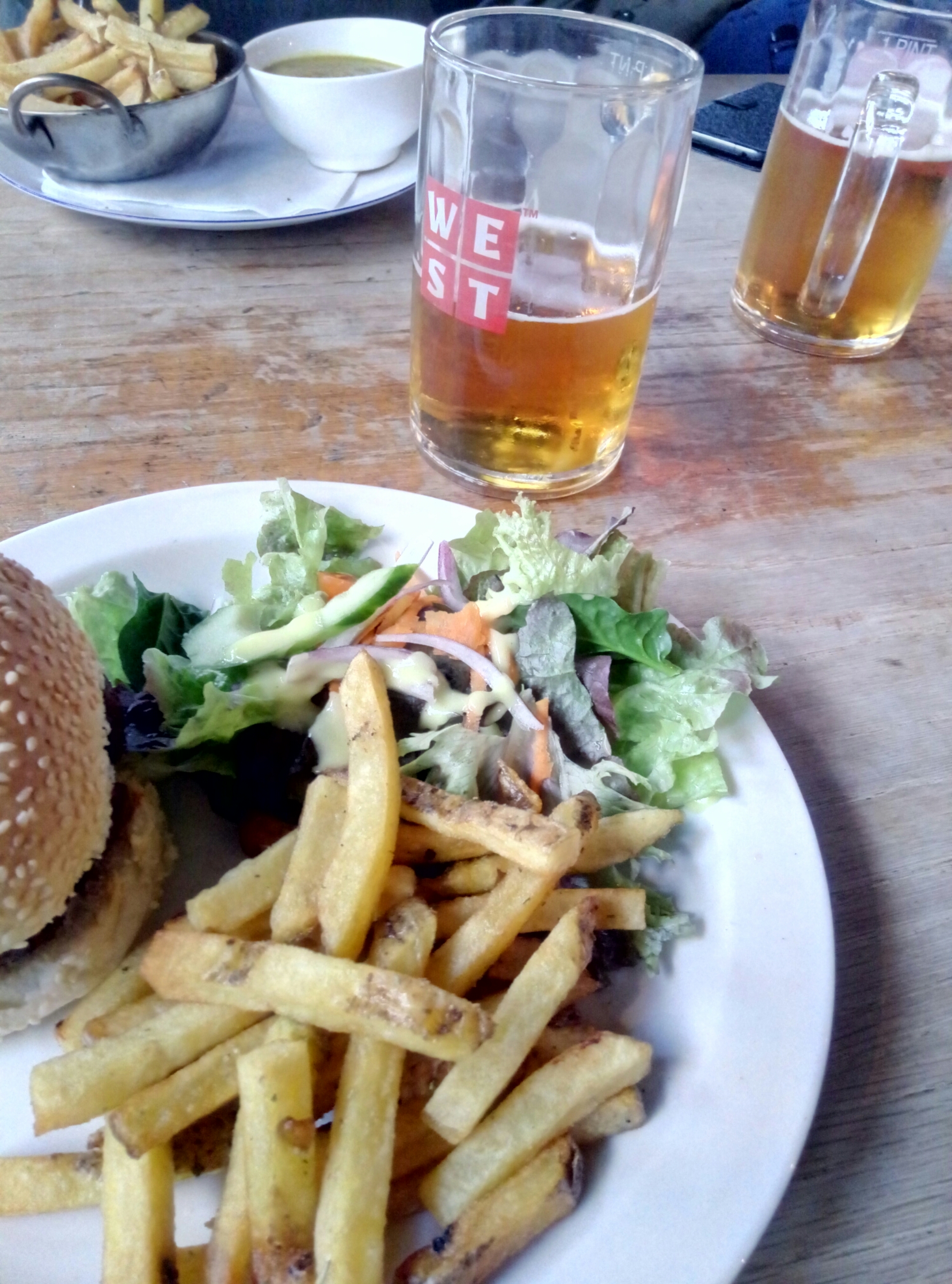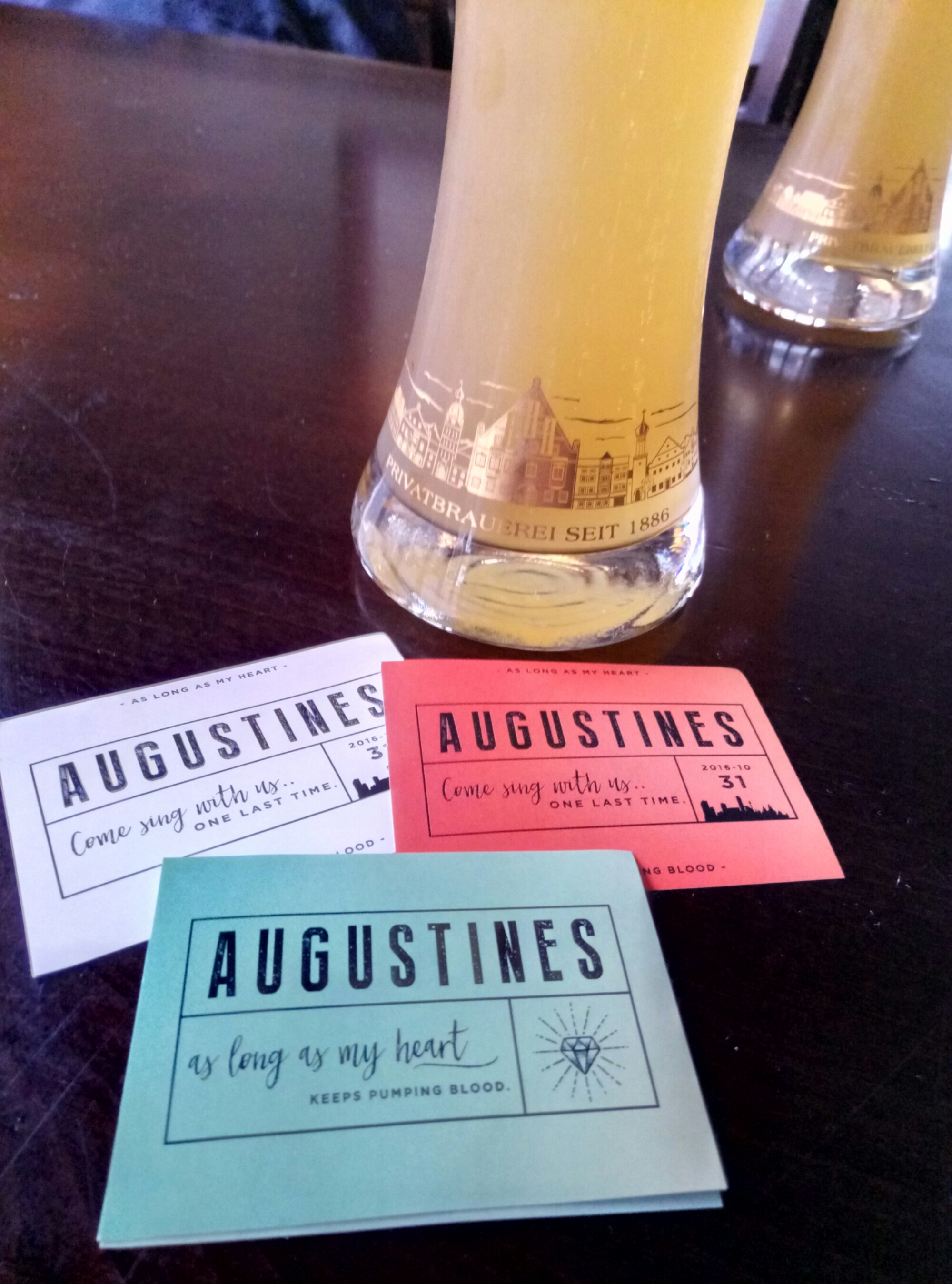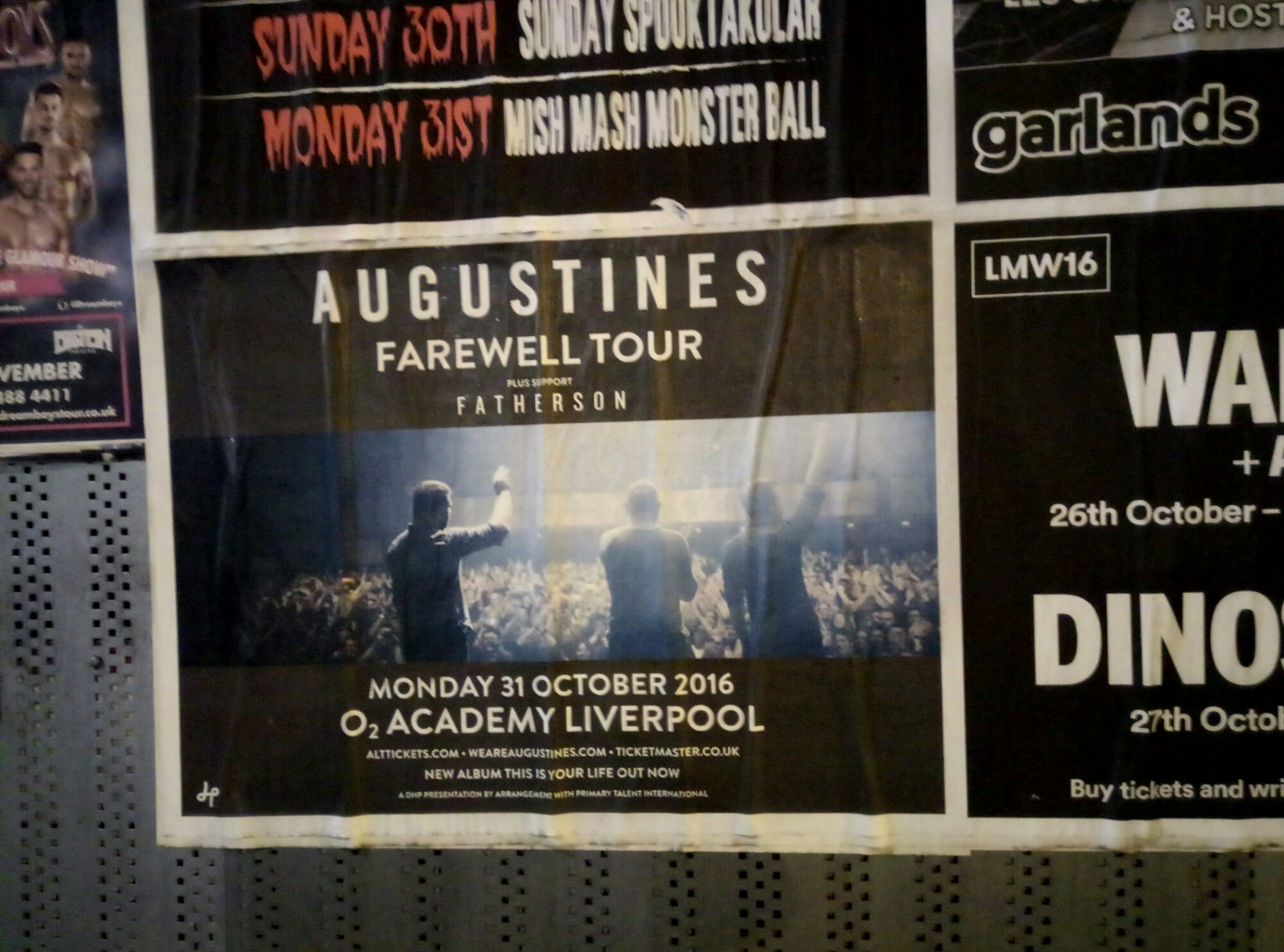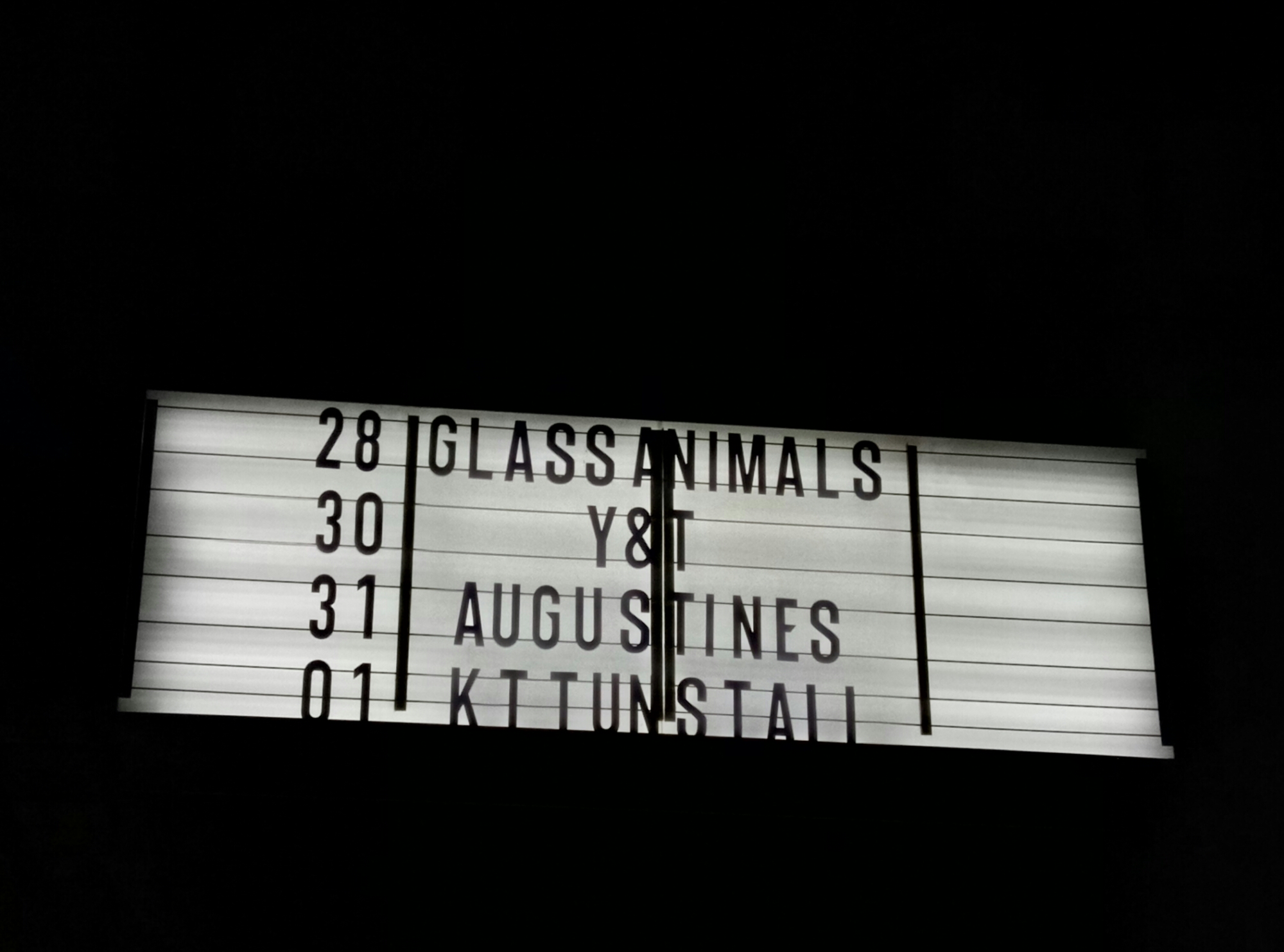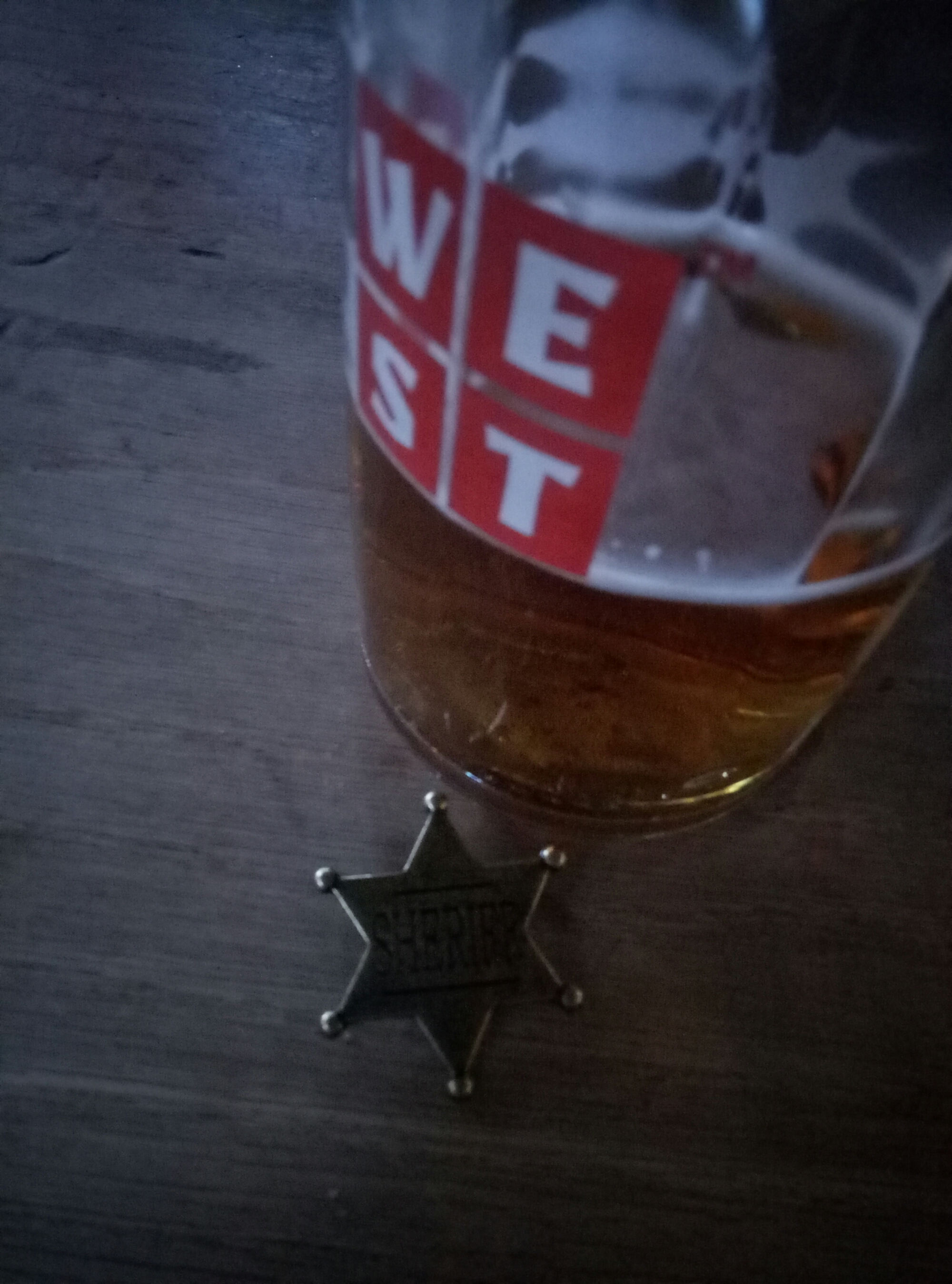As a lover of stout, I’ve been closely watching the work being done to remove the need to use fish bits in the production of Guinness. Ever since last year’s press announcement, about the removal of fish, I’ve been anticipating easy access to a pint of fishless stout.
The end of last year was the target timescale, but like all good projects, there’s been some slippage.
I’ve attempted to follow Guinness Ireland on Twitter, but found that I needed to confirm my age. Although I’m over the age of 18 (by at least … erm … 20 years), the silly Android app presented me with a single year from which to select my date of birth. I made several attempts, but each time was presented with the one year; 2017. I may have accidentally selected this year, so @guinnessireland will not allow me to become a follower. My identity appears to have been stored, so I’m unable to progress in my prenatal state.
However, while I wait patiently to reach my 70s, to reach an age acceptable age to the Twitter app/Guinness, at least I can read the updates. Most of their recent tweets seem to relate to the fish question.
And there’s always Barnivore; the app or .com. there’s actually a little bit of fish-querying history there. For ease, though, I’ve copied below.
Note: Guinness is planning a new facility that will no longer use isinglass. According to them as of January 2017, “We are continuing to work through the installation and commissioning of a new filtration system at St. James’s Gate that will remove isinglass from the Guinness brewing process. We are making good progress on the installation and the project remains fully on track. Like a great pint of Guinness, good things come to those who wait and we will provide a further update as soon as we are able to do so.”
Company email (September 2016):
“Isinglass has been used widely within the brewing industry as a means of filtration for decades. However, because of its use we could not label Guinness as suitable for vegetarians and have been looking for an alternative solution for some time. We are now pleased to have identified a new process through investment in a state-of-the-art filtration system at St James’s Gate which, once in place, will remove the use of isinglass in the brewing process.
We hope to have the new system up and running by late 2016 with the liquid on the shelves for consumers to buy soon after, however this timescale is by no means set in stone.
“Once this is complete, we will eventually implement this new system in the brewing of all our products. However, in response to your query, isinglass is used in the filtration system of all our beers at present, and we do not certify any of our products a s vegan friendly.”
Company email (March 2016):
“In response to your inquiry, the Guinness Blonde is 100% Isinglass free.”
Company email (December 2015):
“In answer to your query, we do use isinglass, a by-product of the fishing industry, for fining all beers. Isinglass is used widely in the brewing industry although it is extensively refined before use. Its sole purpose is as a fining agent to help remove yeast from our beer, while we accept that some minor traces of isinglass may subsequently remain in the finished product.
We are very happy with the technical performance of isinglass in removing yeast although we are conscious that its use may represent a barrier to consumption of our products to some.
Isinglass has been used widely within the brewing industry as a means of filtration for decades. However, because of its use we could not label Guinness as suitable for vegetarians and have been looking for an alternative solution for some time.
We are now pleased to have identified a new process through investment in a state-of-the-art filtration system at St James’s Gate which, once in place, will remove the use of isinglass in the brewing process.
We hope to have the new system up and running by late 2016 and available for purchase in stores soon after.”
Company email (November 2015):
“Please be advised that Guinness made in Dublin only contains Isinglass (a substance obtained from the dried swim bladders of fish) this is not used in Guinness brewed in Australia.
“It is used in the brewing process in Dublin as a fining agent to help remove yeast from the beer. Therefore, while the brewing process removes the vast majority of all of the Isinglass, we accept that some minor traces of Isinglass may remain in the finished product. For that reason, we do not claim that Guinness is either a vegetarian or vegan product when brewed in Dublin.
“However Guinness brewed in Australia does not contain Isinglass. Therefore, Guinness brewed in Australia is a vegetarian and vegan product.”
Company email (April 2015):
“Our Canadian Guinness is the same recipe as the one in Ireland, therefore would not be vegan.”
Company email (January 2015): (UK)
“In answer to your query however, we do use isinglass, a by product of the fishing industry, for fining all Guinness brewed beers. Isinglass is used widely in the brewing industry although it is extensively refined before use. Its sole purpose is as a fining agent to help remove yeast from our beer, while we accept that some minor traces of isinglass may subsequently remain in the finished product.
We are happy with the technical performance of isinglass in removing yeast although we are conscious that its use may represent a barrier to consumption of our products to some. As part of our ongoing efforts to further improve the way we make our products, we are seeking alternatives to isinglass. To date, we have not found any alternative that is as effective and as environmentally friendly as isinglass.”
Company email (August 2014):
“Please be advised that Guinness Draught imported from Dublin, may contain trace amounts of isinglass as this is used during the clarification process of this product. Almost all of the Isinglass is removed from the product, but we can’t guarantee that 100% is removed. However, Guinness Extra Stout brewed in Canada, does not use isinglass during the clarification process.”
Company email (May 2013): [regarding Harp Lager]
“Isinglass, which is a by-product of the fishing industry, is used as a fining agent in Harp- i.e. used during processing to clarify beer. There should be little residue in the finished beer. Findings are removed (by sedimentation and centrifugation) so vegetarians may consider that Harp is suitable for them.
Production processes in Ireland and the UK are subject to strict EU legislation and at present isinglass is the only fining agent suitable for stout, which has been approved that is suitable for our needs. Any new
fining agent, especially synthetic substitutes, would not be approved for food without rigorous testing both in Europe and by the Food and Drug Administration (FDA) in the United States. As yet there are no suitable
alternatives available.”
Note from Jessica (April 2013):
“According to the email I received, there is no Veg friendly product in their lineup nor are there any current plans to have one.”
Company email (March 2013):
[Note from Matt: “Well, here’s the official word I guess, unfortunately.”] “Isinglass is used during the clarification process as a magnet to get rid of excess yeast in the production of any Guinness variant.”
[Editor’s note: In light of the most recent info received we are changing Guinness Extra Stout – North America brewed and bottled to Not Vegan-Friendly, until further notice. Thank you, Matt!]
New note from Matt (March 2013):
“Stop the presses Sarah.
The Labatt’s rep Linda A quoted below responded to me. I asked them very specifically about Guinness Extra Stout in the bottle and even sent them pictures of the back label with product codes on it. Even though the rep on the phone said that it was vegan friendly, the rep via email says they dont brew in New Brunswick and that they are not responsible for this beer.
They instructed me to contact DIAGEO. when i contacted DIAGEO (the proper distributor for this beer according to the label), they gave me the generic response that GUINNESS uses isinglass in their beer. I replied to them for more specific info about the exact product i was speaking about and also sent the the pictures of the label with product info. They have not gotten back to me yet.
Very confusing info from Labatt’s, but now i have in writing that they deny ownership of this specific product, even though the rep on the phone contradicted this information… annoying.
Hopefully DIAGEO responds with more info.”
Note from Matt (March 2013):
“The main confusion for me here is the fact that none of the packaging for Guinness in NA say Labbatt’s brewing anywhere on it (also the Moosehead info which confuses things, cant even tell if they actually brew Guinness anymore), so i wanted to confirm what version of Extra Stout was brewed where.
as follows:
I specifically asked Labatt’s in the email about Guinness Extra stout in the bottle brewed by Guinness Brewing Company, New Brunswick, Canada (this is what’s printed on the bottle label, there is no mention of Labatt’s on the packaging at all, although they are the manufacturers).
I received this email in response [see below] but it sounded very formulaic and didn’t mention Guinness specifically. I called Labatt’s to speak with a rep and at first they gave me the generic answer that they do in fact use isinglass in the process. Then I asked very clearly and specifically about bottled Extra Stout brewed and bottled in New Brunswick. After checking for me the rep was able to very clearly confirm that this product, brewed in New Brunswick, didn’t not use isinglass in it’s production and was in fact suitable for vegans. whew!”
Company email (March 2013):
“You will be pleased to hear that we do not use any animal products in our beer or the production of it.
The fine beers we brew (and import) are brewed with these all-natural ingredients: water, barley malt, hops, yeast, and cereal grains.
The water we use is drawn from the municipal drinking supply and carbon filtered for astounding purity. Our brewing water must free of any taste, color, or aroma before brewing.
Barley malt is the “soul†of beer. Our beers are brewed with pale two or six row barley malt. Roasted barley gives the color to our beers – lightly roasted barley makes pale golden beers like Labatt Blue or Budweiser. For Keith’s Red we use barley roasted a little longer, until the sugars start to caramelize. Roast them yet more? Keith’s Dark.
Hops are the female flower bud of a perennial climbing vine, and are known as the “spice†of beer. Hops are added in different stages of the brew kettle’s boil to give the beer aroma, bitterness, and to balance the flavor.
Yeast is the life of the brewing process. We use our own pure-cultured yeast strains for fermentation – the yeast breaks down sugars into carbon dioxide and alcohol. Our lagers use a bottom-fermenting yeast for a crisper, cleaner flavor. Ales use a top-fermenting yeast for a more fruity, floral, lingering notes.
Most of our beers are also brewed with a cereal grain, also known as an adjunct. Some are brewed with corn for a sweeter taste. Some use rice for a crisp, clean finish.
Beyond this, some beers use special flavorings or spices for a truly unique flavor – like the essence of lime found in Bud Light Lime, or the coriander and citrus peel found in Keith’s White.”
Company email (October 2012):
[from Labatt who brews Guiness Extra Stout in Canada] “You will be pleased to hear that we do not use any animal products in our beer or the production of it.”
Company email (Feb 2012)
I am writing to you in response to your recent email regarding whether Guinness and it’s suitability for Vegans.
In answer to your query however, we do use isinglass, a by product of the fishing industry, for fining all Guinness brewed beers. Isinglass is used widely in the brewing industry although it is extensively refined before use. Its sole purpose is as a fining agent to help remove yeast from our beer, while we accept that some minor traces of isinglass may subsequently remain in the finished product.
We are very happy with the technical performance of isinglass in removing yeast although we are conscious that its use may represent a barrier to consumption of our products to some. As part of our ongoing efforts to further improve the way we make our products, we are seeking alternatives to isinglass. To date, we have not found any alternative that is as effective and as environmentally friendly as isinglass for our product.
Company email (November 2011)
“In response to your inquiry, we would like to let you know that at this time, Guinness Black Lager is not suitable for vegetarians. We sincerely apologize for any inconvenience this may cause.”
Note from William: March 2011
“I know you have received conflicting information regarding the brewing of Guinness, and your level of exasperation is obvious from the Guinness entry. Nonetheless, I tried to follow a logical thread that has been apparent from the beginning, when Guinness original explained that a certain product (Guinness Extra Stout for export to the U.S.) didn’t use Isinglass as a fining agent and was vegan. How could that be, I asked myself. Well, I noticed that the Guinness Extra Stout was brewed in Canada. So, I did some research and found that many of the online commentators at beer sites were wrong. Moosehead, not Labatt’s, brewed it for the U.S.
Thus, I contacted the actual brewers of Guinness Extra Stout that exported here, and their response follows: consumerinquiries@moosehead.ca
“Hello William,
Thank you for your inquiry. We do in fact brew delicious Guinness Extra Stout for export to the States right here in Canada’s most Irish city, Saint John. We do not make use of isinglass in any of our brewing processes, export or domestic.
Consumer Affairs Coordinator
Moosehead Breweries Ltd.”
Company email: (pamela.daly@diageo.com) March 2011
“All Guinness brands are free from animal matter. However, isinglass, which is a by-product of the fishing industry is used as a fining agent – i.e. used during processing to clarify beer. There should be little residue in the finished beer. Findings are removed by sedimentation and centrifugation. Therefore it would not be suitable for vegans.
Production processes in the UK are subject to strict UK/EU legislation and at present isinglass is the only fining agent suitable for stout, which has been approved in the UK. Any new fining agent, especially synthetic substitutes, would not be approved for food without rigorous testing both in Europe and by the Food and Drug Administration (FDA) in the United States. As yet there are no suitable alternatives available.”
Company Email (diageona@consumer-care.net) : January 2011
“In reference to your inquiry, isinglass, a fish product, is used during the clarification process as a magnet to get rid of excess yeast. To the strict Vegan, this would be considered an animal product and therefore unsuitable.
We can inform you that Guinness does not contain eggs, dairy or honey. In regards to Kaliber, unfortunately we are unable to confirm this for you.
Company Email (diageona@consumer-care.net): January 2011
“In regard to your inquiry, please be advised that Guinness does not currently offer any vegan products. We sincerely apologize for any inconvenience this may cause.”
Company Email (diageona@consumer-care.net): January 2011
” We are more than happy to assist you with your inquiry. The North American Guinness Extra Stout does not contain isinglass, nor are any animal products used in its manufacture.”
Company Email (diageoNA@consumer-care.net): May 2009
“In reference to your inquiry, isinglass, a fish product, is used during the clarification process as a magnet to get rid of excess yeast. To the strict Vegan, this would be considered an animal product and therefore unsuitable. “
Company Email (guinness@consumer-care.net) : May 2009
“In reference to your inquiry, we do not have confirmation of Guinness 250th Anniversary stout Edition to be considered Vegan. Isinglass, a fish product, is used during the clarification process as a magnet to get rid of excess yeast. To the strict Vegan, this would be considered an animal product and therefore unsuitable for Guinness products. Since this applies to Guinness products, it is more likely that this also applies to the Guinness 250th Anniversary stout Edition.”
MORE FROM THE BARNIVORE ARCHIVES:
….Jan 2009
“In reference to your inquiry, isinglass, a fish product, is used during the clarification process as a magnet to get rid of excess yeast. To the strict Vegan, this would be an
animal product and unsuitable. I hope this helps. Once again, thank you for contacting
us.”
….Jan 2009
I showed them your web page and they explained (below is a small part of the email in case you want to quote it) that the extra stout is vegan and the draught is not, which explained the discrepancy. Hope that helps. James
“In regards to your inquiry, Guinness Extra Stout does not contain isinglass. Guinness Draught does contain isinglass in both bottles and the draught.”
…..Aug 2006:
Our Consumer Relations department has informed us that the Guinness Extra Stout product that you will find in the North American market does not contain isinglass. I hope this is the answer you were looking for. If you have any other questions, please do not hesitate to ask.
…But then we got this one in November:
In reference to your inquiry, isinglass, a fish product, is used during the clarification process as a magnet to get rid of excess yeast. To the strict Vegan, this would be an animal product and unsuitable.
Did they not know about the Extra Stout? Does this cancel out the previous message? Who knows?
…And then there’s the standard reply:
Thank you for taking the time to contact us and for your interest in Guinness Draught nutritional information. In reference to your inquiry, isinglass, a fish product, is used during the clarification process as a magnet to get rid of excess yeast. To the strict Vegan, this would be an animal product and unsuitable. I hope this helps. Once again, thank you for contacting us.
Well done if you read all of that. If you say the secret password fishlessbeer I’ll buy you a pint.
